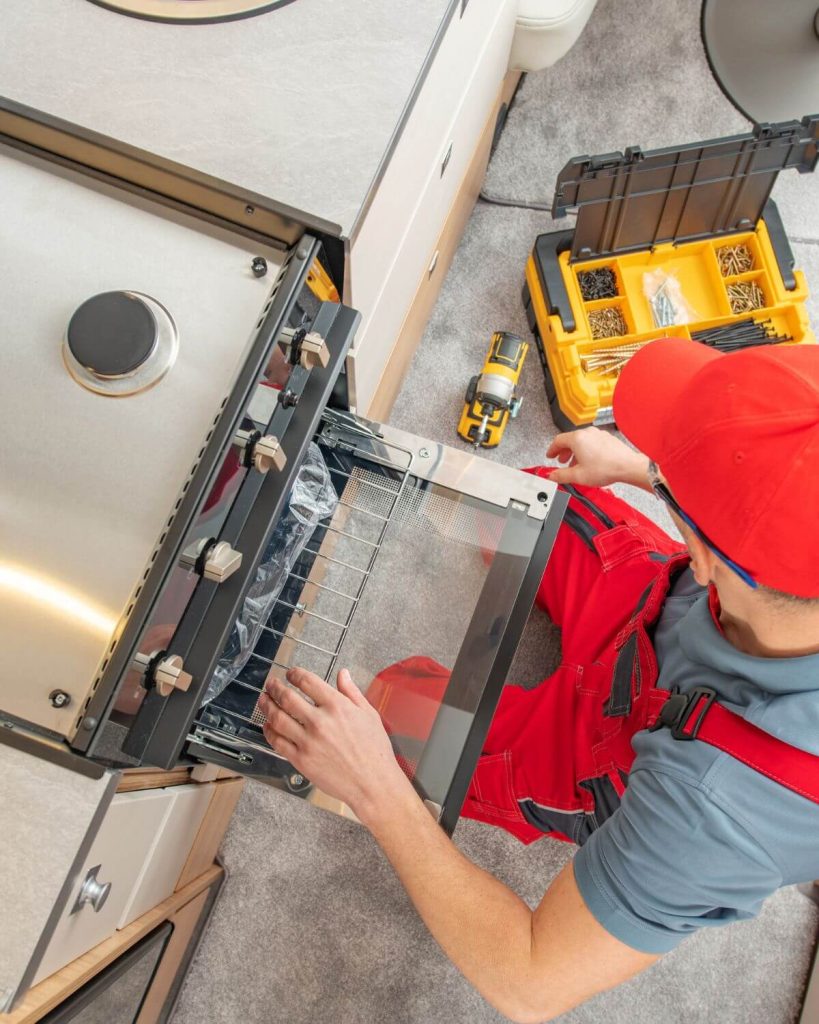A home warranty is a vital service contract that provides homeowners with financial protection and peace of mind by covering repair or replacement costs for major home systems and appliances due to normal wear and tear. Understanding how home warranties operate is essential for homeowners seeking to manage unexpected repair expenses effectively.
In 2023, the U.S. home warranty industry was valued at $3.9 billion, with an average annual growth rate of 3.4% from 2018 to 2023, reflecting growing consumer demand ConsumerAffairs, 2024. Approximately 63% of homeowners purchase home warranties to avoid unforeseen repair costs, while only 5% of U.S. households currently have one, indicating significant potential for increased adoption ConsumerAffairs, 2024. This introduction outlines the mechanics, benefits, and key considerations of home warranties to help homeowners make informed decisions.
What is a Home Warranty?

A home warranty is a service contract designed to cover the repair or replacement costs of major home systems and appliances that fail due to normal wear and tear, offering homeowners financial protection and convenience. Unlike homeowners insurance, which typically covers damage from events like fires or natural disasters, a home warranty focuses on systems such as HVAC, plumbing, and electrical, as well as appliances like refrigerators and dishwashers.
These contracts, usually lasting one year and renewable, involve an annual premium and a service call fee per claim. Optional add-ons, such as coverage for pools or septic systems, can be included for additional costs. Home warranties provide peace of mind by mitigating unexpected repair expenses, making them particularly valuable for owners of older homes or appliances.
What Does a Home Warranty Typically Cover?
A home warranty is specifically designed to protect homeowners from the costs of repairing or replacing major appliances and home systems that fail due to normal wear and tear. While coverage can vary depending on the provider and chosen plan, most home warranties typically cover:
- Major Home Systems
- Heating, ventilation, and air conditioning (HVAC) systems
- Plumbing systems
- Electrical wiring and systems
- Essential Household Appliances
- Refrigerators
- Ovens and stoves
- Dishwashers
- Built-in microwaves
- Washers and dryers
- Optional Add-on Coverage (available at additional cost)
- Swimming pools and spas
- Septic systems
- Well pumps
- Roof leaks
However, it’s important to recognize common exclusions, such as:
- Structural damage
- Pre-existing conditions
- Issues arising from improper maintenance
- Cosmetic damages
Because coverage details vary significantly between providers, homeowners should thoroughly review their specific warranty agreement to fully understand what’s included, what’s excluded, and any coverage limits or conditions that apply.
Costs Involved in Home Warranties
Understanding the costs associated with home warranties is critical for homeowners aiming to manage their household expenses effectively. The primary cost is the annual premium, typically ranging from approximately $400 to $700, depending on factors such as the size of the home, geographic location, and the comprehensiveness of the selected coverage plan.
In addition to this premium, homeowners incur a service fee, often called a trade-call fee, each time a technician visits to diagnose or repair an issue. This service fee generally falls between $75 and $125 per visit. For example, if your dishwasher breaks down and requires a technician’s assessment, you would pay your service fee, say $100, for that specific repair visit, irrespective of the total repair cost. Some home warranty agreements also specify deductibles or coverage caps, limiting the maximum amount covered per appliance or home system annually.
Consequently, if a repair exceeds the stipulated limit, the homeowner is responsible for covering any additional expenses. Key factors affecting overall costs include the age of your home and appliances, the specific coverage options you select, and local labor and material rates.
Reviewing your home warranty agreement carefully ensures clarity regarding costs, helps prevent unexpected expenses, and aligns coverage with your financial planning goals.
Benefits of a Home Warranty
A home warranty offers homeowners a robust layer of financial protection and practical convenience by covering the costs of repairing or replacing major home systems and appliances that fail due to normal wear and tear, such as HVAC units, plumbing, electrical systems, and appliances like refrigerators or washers. This coverage shields homeowners from the high, often unpredictable costs of repairs, which can range from hundreds to thousands of dollars, ensuring greater budget stability.
Beyond overall home warranty benefits, the financial benefits a home warranty simplifies the repair process by connecting homeowners with a network of pre-vetted, licensed contractors, eliminating the need to search for reliable service providers during stressful breakdowns. This is particularly advantageous for first-time homeowners, who may lack experience in managing home maintenance, or owners of older properties, where aging systems are more prone to failure.
Additionally, a home warranty provides significant peace of mind, reducing anxiety over potential system or appliance malfunctions and allowing homeowners to focus on enjoying their home. For those selling their property, offering a home warranty can enhance marketability, signaling to potential buyers that major repair costs are covered, which may expedite the sale process and increase the home’s appeal. Some plans also allow customization through optional add-ons, such as coverage for pools or septic systems, tailoring protection to specific needs.
Potential Drawbacks of Home Warranties
Home warranties, while beneficial, come with some potential downsides. Common issues include claim denials due to coverage misunderstandings or disputes over maintenance responsibilities. Homeowners may also face delays in scheduling repairs, especially during busy seasons. Additionally, warranty companies often prioritize cost-effective repairs rather than replacements, which may not always provide the ideal long-term solution. Lastly, restrictive terms or coverage limits could leave homeowners responsible for unexpected out-of-pocket expenses. Careful review of warranty terms is crucial to avoid these potential frustrations.
Tips for Choosing the Right Home Warranty

Choosing the right home warranty is easier if you follow some clear guidelines. First, evaluate your home’s age and the condition of its appliances and major systems, such as HVAC, plumbing, and electrical systems. Next, set a realistic budget that matches your needs. Once you’ve identified your priorities, compare different home warranty companies. Look carefully at their coverage options, pricing, and customer reviews. Pay special attention to what’s included and excluded in each plan, as well as any deductibles or coverage limits.
It’s also helpful to check the company’s policies on service fees, choosing repair technicians, and response times for repairs. Lastly, consider asking family, friends, or trusted real estate professionals for their recommendations and personal experiences. Following these steps will help you find a reliable home warranty that fits your specific needs and budget.
Final Words
A home warranty is an essential service contract that provides homeowners with financial security and operational ease by covering repair or replacement costs for major home systems and appliances that fail due to normal wear and tear. Comprehensive understanding of a home warranty’s functionality, including plan selection, claim filing, coverage limits, and exclusions, empowers homeowners to mitigate unexpected repair costs effectively.
This contract streamlines maintenance by connecting homeowners with pre-vetted, licensed contractors, saving time and minimizing disruption, particularly for first-time homeowners or those managing older properties. While a home warranty delivers substantial benefits, such as enhanced budget predictability and increased property marketability, potential challenges like claim denials or restrictive terms underscore the necessity of meticulous contract review. A carefully selected home warranty, tailored to specific homeowner needs, ensures sustained home functionality and robust protection against costly repairs.
0 Comments